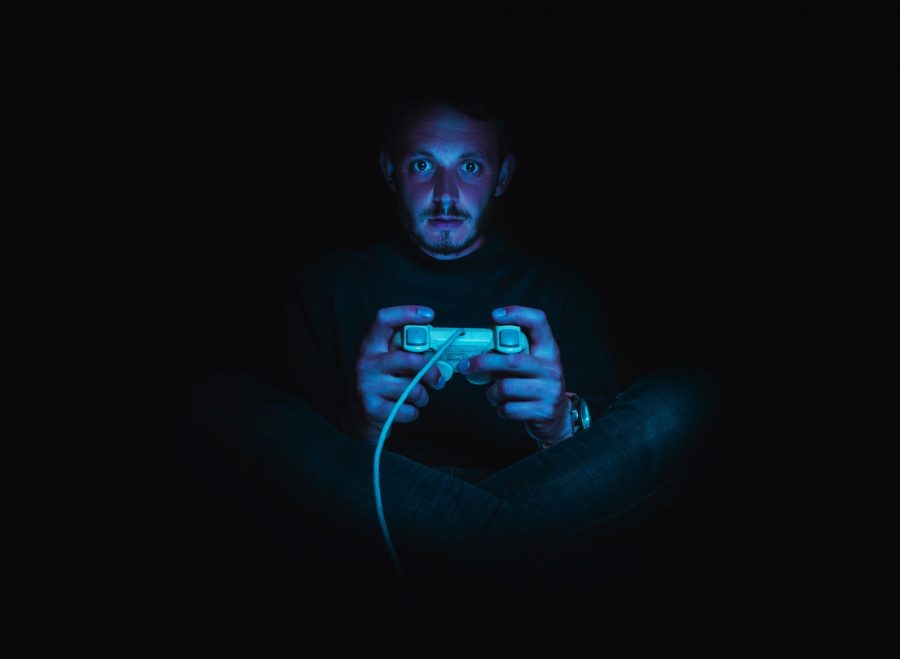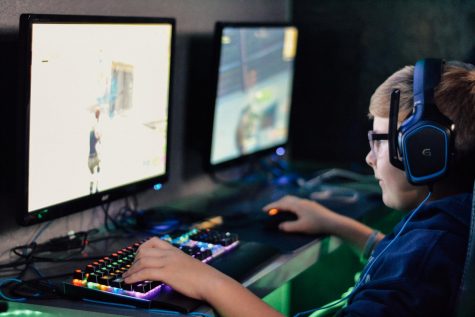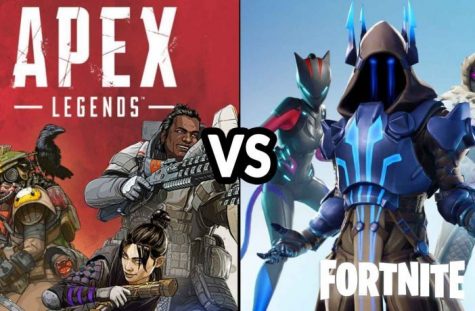Violence and Video Games
March 14, 2019
In recent years, as adults search for answers to why many teenagers seek out violence and conflict to solve problems, whether it be from just a small fight to something worse such as a school shooting, one theory has started to become a popular belief among many parents and experts alike. Video games, more specifically shooter or fighting games.
Many have theorized that the violence in these types of games is at the root of teenage aggression, causing adolescents to often use violence to solve problems of theirs. Though the foundation of this theory is quite plausible, a recent study has debunked the supposed myth of any sort of correlation. The study was done by the Oxford Internet Institute and the University of Oxford, and it was published in Royal Society Open Science.
One of the lead researchers in the study, Andrew Przybylski gave this statement, “The idea that violent video games drive real-world aggression is a popular one, but it hasn’t tested very well over time. Despite interest in the topic by parents and policy-makers, the research has not demonstrated that there is cause for concern.”
The study did many things different from previous studies on the topic in order to be more accurate in its findings. Such measures include using a combination of subjective and objective data rather than self- supported data from the teenagers, as well as using the official PEGI and ESRB rating systems instead of the players opinion on how violent they considered the game to be. The subjects of these tests? Over 2,000 British 14 to 15 year-olds. A similar study by the University of New York has shown similar results as well with over 3,000 participants.
The theory of video games inciting violence has become so popular that even the U.S. Army has resorted to using first person shooter games to desensitize its soldiers to violence. Popular choices include Call of Duty: Modern Warfare and ARMA 2, games that pit players into intense, realistic and sometimes accurate battle scenarios. The only problem with this is that it has not been shown to be an effective method.
Journalist Evan Wright wrote in his book Generation Kill, “What I saw was a lot of them discovered levels of innocence that they probably didn’t think they had. When they actually shot people, especially innocent people, and were confronted with this, I saw guys break down. The violence in games hadn’t prepared them for this.”
The reason this might be the case is the fact that soldiers are given a misconception of what violence is like through video games and encouraged by superiors to engage in such actions. Subsequently, soldiers aren’t mentally prepared and as a result, can be traumatized and suffer from PTSD and other disorders.
So, if the study done by Oxford was considered by many to be accurate, why have there been so many studies in the past that have shown the opposite? Many studies have been done on this subject dating back to the early 2000s, where the theory of video games inciting violence was first proposed. Well, according to Dr. Netta Weinstein, the co-author of the Oxford study, bias may have been an influential factor, going as far as to say, “Our findings suggest that researcher biases might have influenced previous studies on this topic, and have distorted our understanding of the effects of video games.”
Insufficient methods of collecting data have also been thought to be a deciding factor. This has also thought to have been the case for a number of other studies covering other digital rumors, such as whether social media causes depression or technology addiction lowers life quality. This is common, as many people, specifically older ones tend to blame new and popular culture for the world’s woes, mostly because they don’t fully understand it. In the past it has been rock and roll, violent movies, rap and even TV shows such as Looney Tunes, that were thought to have been the main culprits of corrupting children.
Now, as it turns out, the blame seems to have been shifted towards video games. Although, now that new research has proved contrary to popular belief, the blame might settle down come the next few years, especially with video games playing such a pivotal role in culture and society. And while the studies did not find an increase in violence, there were other traits that were shown to have increased such as trash-talking, trolling, and competitiveness, which all come as no surprise.
Sources:
● https://www.forbes.com/sites/olliebarder/2019/02/15/new-study-shows-that-there-is-no-link-between-violent-video-games-and-aggression-in-teenagers/#11b3da88328e
● https://theconversation.com/how-the-us-military-is-using-violent-chaotic-beautiful-videogames-to-train-soldiers-73826
● https://pediatrics.aappublications.org/content/138/2/e20161298
● https://www.dexerto.com/gaming/violent-video-games-study-441342
● http://www.ox.ac.uk/news/2019-02-13-violent-video-games-found-not-be-associated-adolescent-aggression
● https://www.youtube.com/watch?v=h9SZKTIlIu0
● https://www.quora.com/Why-do-people-think-that-violent-video-games-cause-aggression














